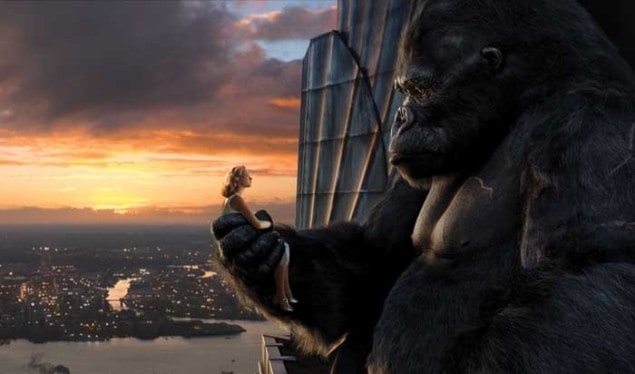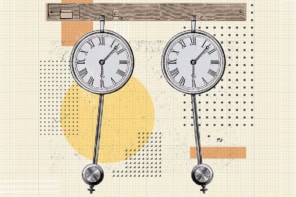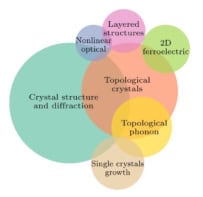Jennifer Ouellette reviews Scale: the Universal Laws of Life and Death in Organisms, Cities and Companies by Geoffrey West

After being found guilty of heresy by the Catholic Church, Galileo Galilei was infamously placed under house arrest for the last nine years of his life. But he was far from idle during this time, writing one of the foundational works of modern science, Discourses and Mathematical Demonstrations Relating to Two New Sciences. The text includes a discussion of why it would be impossible to scale up an animal, a tree or a building to infinity. Galileo phrased it as a question of geometry – assuming a fixed shape for an object, its volume will increase at a much faster rate than its area. In practical terms, as an animal grows in size, its weight increases faster than the corresponding strength of its limbs, until the animal collapses under the force of its own weight. That’s why there could never be an animal the size of Godzilla, or Hollywood’s latest incarnation of King Kong.
In other words, there are very real constraints on how large a complex organism can grow. This is the essence of all modern-day scaling laws, and the subject of Geoffrey West’s provocative new book, Scale: the Universal Laws of Life and Death in Organisms, Cities and Companies. A physicist by training, West is a pioneer in the field of complexity science, and former director of the prestigious Santa Fe Institute in the US. Scale is the culmination of years of interdisciplinary research geared toward answering one fundamental question: could there be just a few simple rules that all complex organisms obey, whether they are animals, corporations or cities?
West clearly thinks the answer is yes, in the form of a handful of inter-related scaling laws. As evidence, he points to three simple graphs: one plots the number of heartbeats in an animal’s lifetime versus the weight; another plots metabolic rate versus rate in various animals; and the third plots the net assets and income of publicly traded companies versus number of employees. All three show strong scaling behaviour. In fact, West makes the bold claim that just by knowing the size of a mammal, he can use scaling laws to determine how much food it requires, its heart rate, life span, even the radius of its aorta, among other measurable characteristics.
The essence of any complex adaptive system – a person, a company or a city – is that there are many small interacting components within a network that iteratively follow very simple rules. Over time, complex behaviour emerges in the system, usually in an unpredictable way. Such networks can be observed all around us, and West maintains that they are the mechanism by which nature distributes energy and materials.
Within this framework, a company is much like a living mammal, consuming energy and resources to transform them into something useful – it has a metabolism, if you will. So what happens to that company as you scale it up in size? Common sense might dictate that doubling in size would require a doubling of resources, but that is not what West found when he analysed the data. An animal that is twice the size of another only needs 75% more food and energy per day, and the same goes for a company that is twice the size of another. It’s an example of sublinear scaling – and it’s the reason companies, like living organisms, have a finite life span. They grow rapidly when they are young, but growth gradually slows as they mature, until they “die” via bankruptcy, mergers or acquisitions.
Cities behave very differently, according to West. They show the same sublinear scaling when it comes to infrastructure: the bigger the city, the more efficient the distribution of its roads, cables, gas stations, power lines, railways and other infrastructure, so the fewer of those a city needs.
But the essence of any city is its people, interacting and collaborating with each other to innovate and create wealth. The socioeconomic aspects of cities – wages, number of patents, wealth, not to mention negative aspects such as crime, pollution and disease – exhibit what West terms superlinear scaling. Cities also become more diverse as they grow, while companies become more homogenized and risk-averse, making them less robust when the inevitable catastrophic fluctuation hits. Cities therefore rarely die, even after a catastrophic event. The Japanese city of Hiroshima thrives today despite the devastation wreaked on it by the atomic bomb in 1945.
Of course, there is a catch to West’s theory: such unbounded growth is ultimately unsustainable. It’s the Godzilla problem with a twist. Such a system will keep growing to infinity, requiring infinite resources, and that is just not possible in the real world. The key is innovation via disruptive technologies, for instance. A major paradigm shift will essentially reset the system, staving off collapse. But those shifts must occur at an ever-accelerating pace. There may have been thousands of years between the Stone, Bronze and Iron Ages, West writes, but only two decades between the computer age and the dawn of the information age. He likens it to having to jump around on a series of accelerating treadmills at an ever-increasing rate. And he predicts we’re due another major shift in the next 20–30 years.
Physicists are infamous, especially among statisticians, for seeing power laws everywhere, but West has constructed a rigorous and convincing case for his thesis, in clear and engaging prose. Alas, he frequently repeats himself, and he can’t quite shake off the awkward academese. (I lost count of how many times the reader is told that something will be discussed in more detail later.) That said, given the sheer scope of his subject, perhaps it’s not a bad idea to hammer the central message home several times.
Reading Scale, one’s thoughts inevitably turn to death – what Steve Jobs once called “life’s change agent”. By West’s scaling calculations, human beings in the early 21st century have roughly three billion heartbeats in a life span. How can we best make use of that time? Perhaps this is why West invokes the famous chess-playing scene from Ingmar Bergman’s classic film The Seventh Seal, where Death asks Antonius if he ever stops questioning. Antonius answers, “No, I never stop.” As West concludes, “And neither should we.” Only by constantly asking questions about how the world works, can we hope to ensure our continued survival.
- 2017 Weidenfeld & Nicolson/Penguin Press 496pp £25/$30hb



